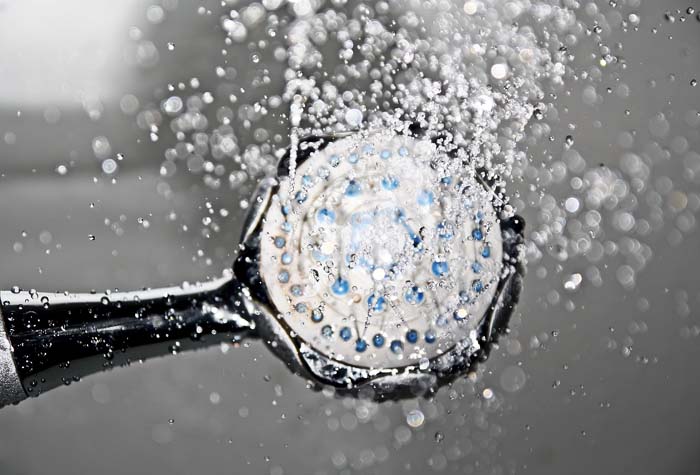
Just as you should be careful about the water you drink, you should also be cautious about the water you apply to your skin. Showering is an even more efficient way for the human body to absorb water than drinking it. Some may believe that their skin can protect them from environmental pollutants like water. But in reality, it acts like a sponge, soaking up whatever comes into contact with it before transferring it to your internal organs and eventually building up in your system. You can get rid of all that and more with a shower filter.
Shower Head Filter
Installed in the shower head, a shower filter improves the water quality for healthier skin and hair. This removes contaminants, including bacteria, heavy metals, and chlorine.
Water Softener
These use ion exchange in water to get rid of hardness-causing minerals. This results in softer water, which is better for appliances and pipes since it lasts longer.
Here’s how to know that you need a shower filter
- Unfiltered shower water might contaminate the air in your home.
Although chlorine is among the most dangerous compounds in your water, it is far from the only one. Shower water may also include chloramine and other trihalomethanes. In other words, those toxins are evaporating into your home’s air as you relax in that hot shower.
- Your unfiltered shower head contains bacteria
New research shows that the majority of shower heads include bacteria, some of which can cause serious health problems like lung infections. A shower filter will ensure that your water lacks microbes or bacteria.
- You might be aging too quickly if you use unfiltered shower water
In addition to drying out your skin and increasing its sensitivity to the signs of premature aging, the chlorine in unfiltered shower water can harm skin cells and bring on wrinkles at an earlier age. What feels like a renewing and invigorating shower at the end of the day is aging your skin.
Other Signs You Require a Shower Filter
- You may have the following symptoms after getting out of the shower: dizziness. lethargy, tiredness, or lightheadedness.
- Unhealthily frizzy, dry, or brittle hair.
- The shower glass has scale.
- Itchy or scaled scalp
- Hard time breathing in the shower.
- Red or dry eyes.
- Stinking shower water.
- Irritated, dry skin (results in wrinkles and premature aging).
- Injuries that worsen preexisting skin problems, such as rosacea, eczema, or psoriasis, particularly in newborns and young children.
Is there a need for a shower filter if I have a water softener?
A shower filter, even with a water softener, could be a good investment. Some contaminants, such as specific bacteria, heavy metals, and chlorine, remain in the water after a water softener has removed the minerals that cause hardness. If you use a shower filter to remove these extra impurities, the water in your shower may be healthier for your hair and skin.
The advantages of water softeners
You can install whole-house water softeners to soften the water before it reaches your home. Removing the minerals may prevent clogs due to mineral accumulation in your appliances and plumbing. It contains the water from rinsing away the soap and drying out your skin too much or making it itchy.
Another option is to use a shower head water filter to isolate the water from that specific shower head and eliminate contaminants. The water will remain hard unless other fixtures in your home have their own water softeners or if yours is a whole-house system.
Still, water softeners aren’t a solution for all water problems. Even when the mineral content has been reduced, there may still be contaminants in the water, such as excessive sediment, chlorine, and others, that might harm your skin and health in general. As a result of its drying effect on the skin, chlorine worsens diseases such as rashes, psoriasis, eczema, and acne. By getting rid of it, you can maintain clear and supple skin.
The advantages of water filters
To improve the quality of the water you use for bathing, install a water filter shower head to lower the chlorine levels. Even though a water softener isn’t necessary if your house doesn’t have hard water, a shower head water filter will help you enjoy the purest water as you wash. To avoid harming your skin when you bathe, use a water filter and softener if your house has hard water.
Conclusion
Installing a water softener is the only option to enjoy the advantages of soft water in the shower if your water supply is hard. But there are many more uses for softened water than just a shower. Hard water speeds up the deterioration of appliances like washing machines and dishwashers.
The buildup of scale in pipes and the appearance of soap scum on fixtures in the bathroom and kitchen are both due to hard water. You can’t get the same benefits for your hair and skin from softened water as a standard shower filter. When used in conjunction with a water softener, a shower filter may significantly improve the quality of your shower water if it is very hard and severely chlorinated.
